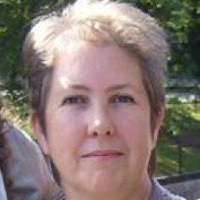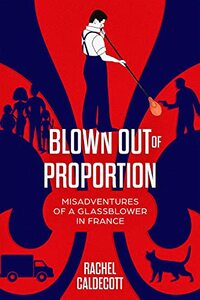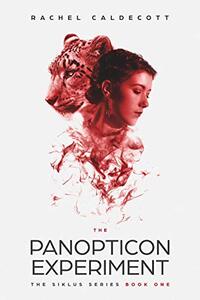Where have you spent most of your childhood?
I grew up in West Dulwich, south London, A short bus ride to Brixton and the underground line to central London. Brixton was lively, had a great street market, cinemas and clubs. While Dulwich, was picturesque but odd. The heart of it is an oldy-worldy village, tiny cottages next to great mansions. We didn’t have much to do with the village as I think my parents found it a little too closed-minded and ‘English’, but my brothers both got scholarships to the public school there.
How has growing up in a family of artists, writers and ecologists helped you in life?
There was always something to do, try, discover, think and care about. My family was interested in ideas. Discussions were lively, and there was a constant flow of fascinating visitors. It wasn’t always easy though. Let me just say that as a teenager, I wasn’t necessarily as ‘productive’ with my time as my parents would have liked. I was more interested in surviving school and socializing and fitting in with my mates than in lofty ideals, and that caused a little friction. My mother couldn’t conceive of anyone getting bored, and I do remember her saying that “only boring people get bored”, which I now recognize as a little harsh and unrealistic. Having said that, I’ve tried that phrase on my own kids but they just laugh at me. My parents and my older brothers were ridiculously smart and driven, but I sort of drifted along interested in lots of things but never really dedicated to a particular field. The general opinion within the family was that while I wasn’t ‘intellectual’, I was at least clever, but more importantly sociable and caring. I had guitar lessons with Nick Moore from the rock band Hackensack, ballet lessons in the draughty village hall, modern dance for a while at the Italia Conte Stage School, drama at the South London Theatre Centre in Norwood, and gymnastics at Crystal Palace. The gymnastics classes were a result of watching Olga Korbut at the Olympics but my enthusiasm was short-lived.
What did being an author mean to you as a child? What does it mean to you now?
I never intended to be an author. I wanted to be a dancer. I applied to Brighton to study Expressive Arts; (fine art and dance). Shortly before starting I hurt my back badly and changed the dance module to theatre studies.
But for me, writers were completely normal people; there was no mystique to them. I meet people, every now and then, who pronounce ‘Author’ in hushed tones, with a capital ‘A’, and I suppose there are some authors who go out of their way to encourage this sense of awe and reverence. But don’t be fooled, they are just like the rest of us. You should hear some of the stories . . . LOL.
Seriously, given I’m now writing, it was useful to have an insight into both worlds. As a publisher, my father had certain - not always flattering views - about authors; whereas, my mother would have her own - equally unflattering – writer’s opinion on publishers and agents. When I started writing and trying to get published, I had certain preconceived ideas about how the system worked. These were based on my parents’ experiences. Bear in mind my father died in 1989, aged 64. Even back then, the rot had set in. Publishing houses were starting to be run by the accounts and marketing departments. Sadly, I’m like every new author, struggling to land a deal, and have no special advantages. I certainly don’t have a handy back door to an agent. Clearly, I started my writing career too late to cash in on a bit of latent goodwill for my parents. (Shucks! LOL again)
How did your writing journey begin? Why did you start writing?
I wrote emails to friends about our move to France, and received a lot of positive feedback of the, “you should write a book” variety. These responses boosted my self-confidence as a writer, so I kept adding to my notes; I thought perhaps I could turn our experiences into a book. I have finally finished it and it’ll be out at the beginning of June. Watch this space for Blown Out of Proportion – Misadventures of a Glassblower in France.
Meanwhile, I dared to write a short history of the little French town we now call home, as there was nothing about it in English. It was published locally and still sells regularly at the museum and local supermarket.
But I’d never thought of writing fiction. The basic plot of The Panopticon Experimen, came while watching our cats interact. From observing their different personalities and abilities, it occurred to me they were far brighter than we thought . . . that all animals are. It is our inability to understand them that is the problem. It was the classic ‘"what if?" moment. What if we could really communicate with animals? How would society change? Would we all become vegetarian? Would we all be happy?
What challenges did you face while writing the book, The Panopticon Experiment?
My impatience will always be the greatest challenge to my writing. The story of The Panopticon Experiment came to me in a flood and basically wrote itself. I couldn’t write it down fast enough and was eager to finish. In fact, several times I gave it to my sister-in-law to read, thinking that I had. Invariably, she’d turn around and say, “Good start. Great story. Can’t wait for you to finish it.” I’d wander off, grumbling. But it turned out she was right. I had a lot more work to do.
The other great challenge is to find a quiet moment and place for writing. Our house is mainly open-plan. We have two floors. The main living area is 47 m2 in total. Within this space are the kitchen, bathroom, living room, and my 'study', overlooked by a mezzanine bedroom. The reality is that my computer sits two meters away from the TV, and if I turn my head I can see the kitchen (and the piles of dishes or laundry that need dealing with) a few meters beyond. Peace and quiet are rare commodities.
What's the strangest thing you have ever had to research online for your book?
The most interesting was animal communication. The grossest would have to be lobotomies.
If you could give a writer working on their debut novel one piece of advice, what would it be?
When you think you’ve finished, stop, put the manuscript aside, do something else for a few weeks/months (the longer the better, actually), then re-read it. Only then should you worry about refining it, eliminating all those pesky filler words, and checking your dialogue. But you need to have that break first, after getting the bulk of the story down. You also need to accept that a book is never really finished. You can re-write it a million times, but do you really want to? At some point, you have to stop and let it go. Release it into the wild, and let it take its chances with the readers.
Who inspired the character of Flo in The Panopticon Experiment?
I modelled Flo on my own daughter, Florence, who is also the girl on the cover. I’ve only ever received one less than perfect review. The sole criticism the reviewer had, was that Flo was too headstrong. This made me laugh. She’d obviously never met many seventeen-year-old girls, and certainly had never met my Florence! With that as the only real criticism, I’m happy.
What was your top reason for wanting to be an NGO worker?
I’d done a few jobs in my time, and then out of the blue got offered a six-month contract for WWF. They needed me because I’d studied theatre and was fluent in Italian. I was to help organize their 25th anniversary in Assisi, Italy: hiring performers and organizing theatrical shows and concerts around the town. I’d always supported the charity, so it gave me great pleasure to work for them. After that, I never looked back. There is nothing better than working for something you believe in and does good in the world. After working for various environmental and development NGOs, I ended up getting a job at the Wembley Stadium event, celebrating Nelson Mandela’s release. He’d been a family hero, and it was an honour to work on this.
What have you learned about yourself since you became an author?
I can’t punctuate to save my life and I’m a slow writer.
How many hours a day do you devote to writing? Do you write a draft on paper or on a keyboard?
I could happily write all day, every day, but I do want to discipline myself to get out and move around more before I fuse to my chair. I write directly onto the keyboard. After hand surgery, I gave a voice-typing app a try. It was horrible. I can’t imagine ever being able to dictate a story like that. Besides, the app I used couldn’t cope with foreign words. While writing about Borneo, I referred to myself as an orang puteh (white person). The app repeatedly called me a round potato – which may be more accurate, but still . . .
What advice could you give a young writer about writing in the Science Fiction genre?
Don’t be afraid to invent stuff – to let your imagination go crazy – but be prepared to do extensive research. I try to make my science believable and, where possible, accurate. In fact, not just the science, I like to make sure that everything I write is conceivably possible.
How do you spend “quality time” with yourself?
Quality time ‘for me’ is when I’m writing (or making jewellery). But the best quality time is spending time with my family doing something we all enjoy.
Is there anything you are currently working on that may intrigue the interest of your readers?
I’ve already mentioned my book about our move to France, Blown out of Proportion – Misadventures of a Glassblower in France. That’ll be available to buy from the beginning of June. It includes stories of when my husband was kidnapped at gunpoint and other crazy stuff. It is the antithesis of one of the “we bought a chateau in France and did it up, then couldn’t decide where to put the pool” style books. Nothing like that at all!
But a project I’m particularly excited about is Ink Slip. This is a time-slip novel with a science-fiction twist. That’s all I’m going to tell you. The premise is very unusual so I don’t want to give anything away yet.
What originally attracted you to our website? If you were to review the website what score would you give it out of 5?
To be honest, I can’t remember how I came across your website. However, it is a great service. I’ve been very impressed by the quality and quantity of your tweets on my behalf. I certainly couldn’t reach as many people without you. So, you earn a 5 star from me.





